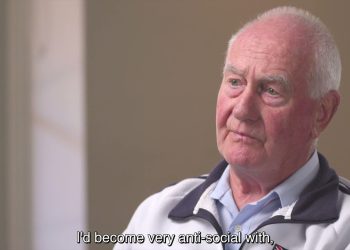Deep in the neon heart of Las Vegas, the International Problem Gambling Center is taking a groundbreaking approach to combat gambling addiction: intensive cognitive therapy that digs into the emotions triggering compulsive gambling behaviors.
The Program Unveils the Underlying Causes of Gambling Addiction with Cognitive Therapy
The program at the International Problem Gambling Center offers a rigorous six-week course of cognitive therapy sessions, directed by the expert hand of Stephanie Goodman, as reported by the Las Vegas Review-Journal. Participants are challenged to examine their risky behaviors through intensive counseling and group sessions, peeling back the layers to reveal what truly drives their gambling compulsion.
Goodman points out that while roughly 6% of Nevadans struggle significantly with gambling, this isn’t just a matter of lacking willpower. She emphasizes that gambling addiction is a serious mental health issue that warrants the same attention and care as any other addiction. It’s high time society drops the stigma and recognizes this.
The harmful stigma attached to gambling addiction often leads to social ostracization, making it even tougher for individuals to seek the help they desperately need. Goodman firmly believes that gambling addiction, like any other addiction, demands comprehensive treatment and widespread societal understanding.
Dr. Kobie West, the center’s assistant clinical director, further explains that the center has opted for cognitive therapy as the cornerstone of treatment. Since no pharmacological solution exists, cognitive therapy delves into the emotional triggers that drive gambling addiction. By focusing on unresolved traumas and unresolved grief, therapists help addicts confront and manage the inner turmoil they’ve been attempting to escape through gambling.
Comprehensive Therapy Approach Proves Highly Effective for Gambling Addicts
The center’s new methodology combines individual counseling sessions with group activities where patients openly discuss their struggles with gambling. This integrated strategy is designed to equip individuals with healthier ways to manage their emotions, steering clear from the destructive cycle of gambling.
One of the innovative techniques used is a metaphor called “the pizza pie”. Therapists ask addicts to visualize what their life would look like if they didn’t gamble, guiding them to replace the time spent on wagering with positive, fulfilling activities.
The success of the center’s approach is nothing short of remarkable. The program has achieved a recovery rate far higher than the national average. Goodman proudly states that while only 8-10% of problem gamblers remain in recovery after a year nationwide, the center boasts an impressive 44% success rate. This figure jumps to a staggering 98% for those who continue with follow-up sessions. The center’s approach offers a beacon of hope for those battling the grip of gambling addiction.
Goodman stresses that active participation and an earnest desire to get better are crucial in overcoming gambling addiction. The numerous success stories emerging from the center eloquently showcase just how arduous it is to conquer this addiction without addressing every facet of the individual’s life affected by the disorder.







